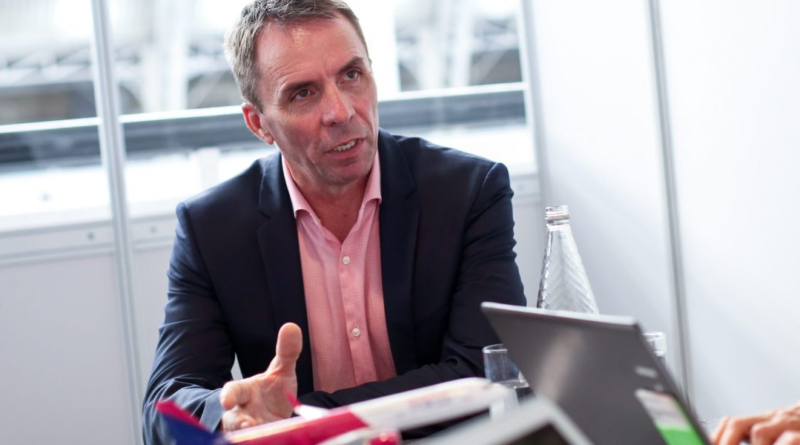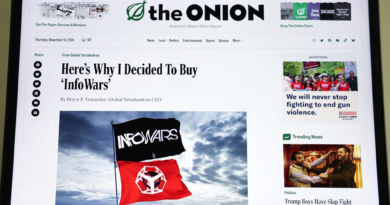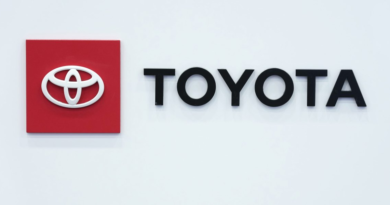European budget airline Wizz Air CEO defends his $127 million pay-out as it will help everyone—including its employees
Wizz Air’s business has taken off since the pandemic, with resurgent travel demand helping the London-listed budget airline turn its first annual profit in three years in the 12 months to March.
Another upside of its solid performance? If it helps Wizz Air’s stock to hit a certain threshold, CEO and cofounder Jozsef Váradi will take home a £100 million ($127 million) bonus.
However, Wizz Air shares have fallen 24% in the last year. So with the crucial summer season kicking off, Wizz Air has much to gain—as does its CEO—if things go in its favor.
Why does Váradi think $127 million is fair?
We’re not talking about a small figure here. But Váradi justified the possible $127 million payout—part of the company’s snazzily titled Value Creation Plan—as fair because he claims it will ultimately benefit everyone if it helps Wizz Air reach its lofty targets.
The airline boss has a tall task ahead of him to get the payout, which will involve hitting a share price of £119.34 ($151.56), in the process creating shareholder value of nearly £10 billion ($12.7 billion). He argued that his bonus merely amounted to a small “commission” equivalent to 1% of that sum.
“You go to any of the banks, they will charge you two to three percent easily. So why are you prepared, you know, to pay an institution a lot more than people who create that shareholder value?” Váradi said.
He added that he won’t be the only person to benefit if Wizz Air hits its targets. “We have a holistic approach that remunerates not only the chief executive, but leadership, management of the company, as well as all the employees,” Váradi told City A.M. in an interview published Thursday.
Of course, there are payouts and there are payouts, as a brief Fortune analysis of Wizz Air’s remuneration policies reveals.
Wizz Air’s all-employee bonus plan, as published in its 2023 annual report, caps the yearly bonus for rank-and-file workers from hitting share price targets at one month’s salary. As the company’s careers site gives an indicative wage of £26,450 ($33,592) for new U.K. applicants for cabin attendant positions, this would suggest a £2,204 ($2,800) bonus for a junior employee—over 45,000 times lower than Váradi would get.
Why does it matter?
Váradi isn’t eligible for his payout yet—at the time of writing, Wizz Air’s stock was at £21.67, less than five times what it would need to be to trigger his maximum reward—but he has a chance. Despite Wizz Air’s tumultuous few years with the pandemic and its aftermath, it is getting back on the right path.
His statements also add to the debate surrounding CEO compensation and the growing gulf between European and American executives.
Some experts argue that a firm’s top leaders need to be paid more to go toe-to-toe on a global stage, while others think CEOs are being overpaid in comparison to the average employee.
“We’ve hamstrung ourselves from creating a level playing field with which to compete with the rest of the world,” London Stock Exchange chief Julia Hoggett said of lower pay in the U.K. in a podcast last year.
In a recent case, one of AstraZeneca’s major investors said its CEO Pascal Soriot was “massively underpaid” compared to his American counterparts, after other shareholders said he was being excessively rewarded.
Even in the aviation industry, Váradi is also hardly alone in the massive bonus plan club. His peer at Irish budget airline Ryanair, Michael O’Leary, could receive a $108 million bonus if the airline’s shares reach a certain price level.
In an interview last month, O’Leary likened himself to football club managers, saying he deserves the pay just as much as they do.
It’s a sentiment Váradi himself mirrored this week. “I think increasingly if you’re going to be competing with the Middle East and Asia you have to be competitive. If this is the market, this is the market,” Váradi said.
Would excelling in that market justify $127 million when the time comes? I guess it’ll depend on who you ask. But Váradi certainly seems confident it makes sense for him and for the company, and he’s proven more than willing to defend it.



